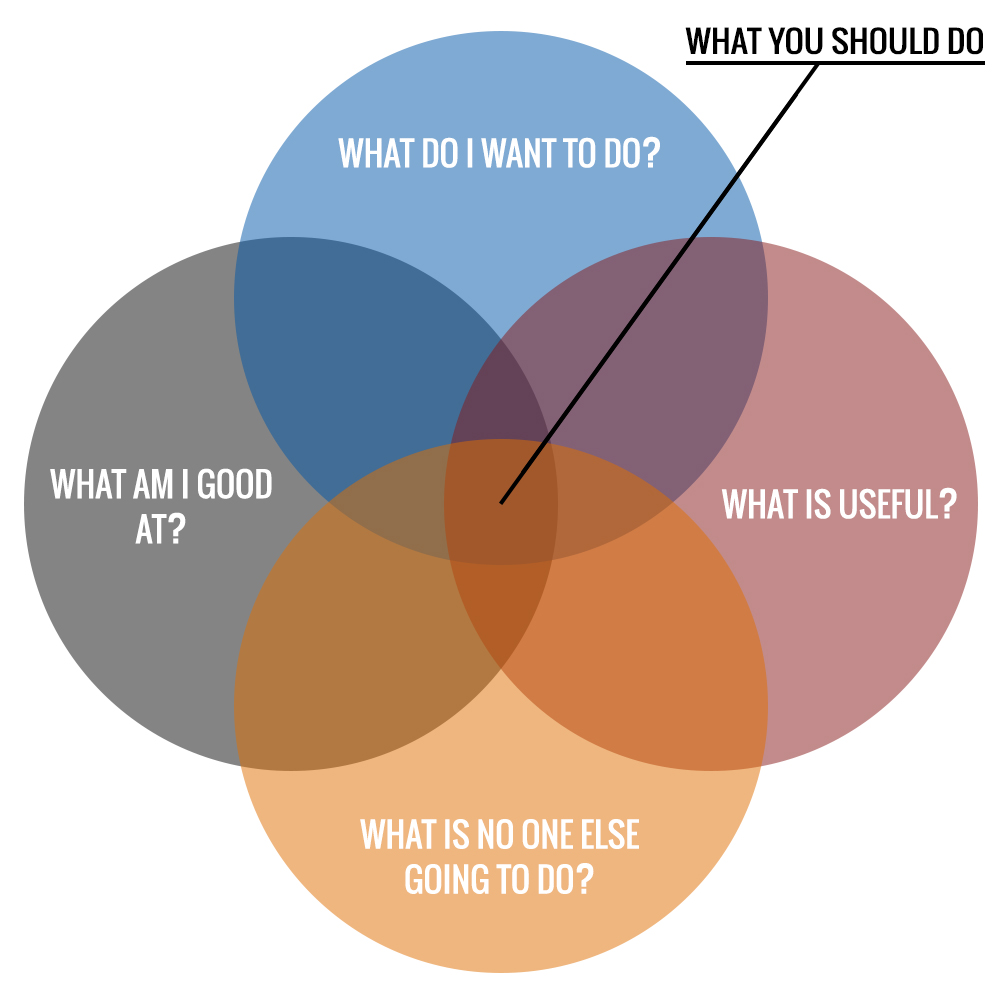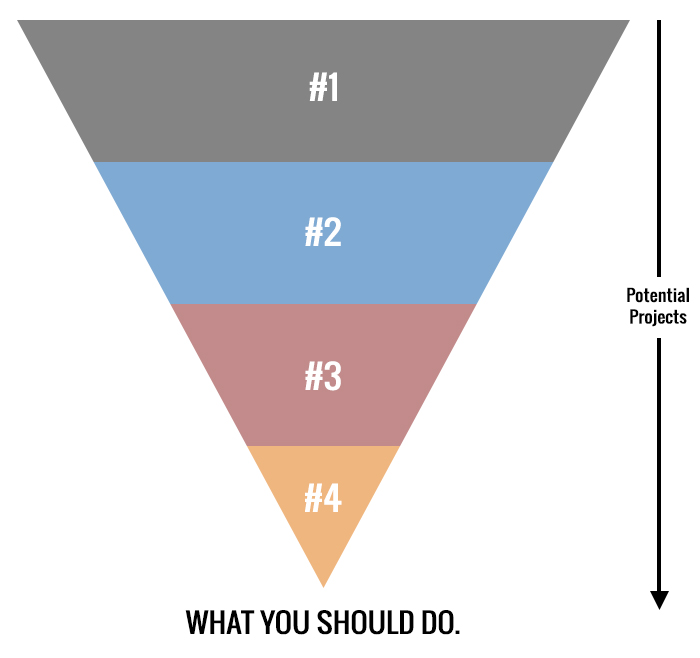Imagine you’ve just finished a project that you’ve been working on for months, if not years. The feeling of finishing is incredible, but you also have this itch. This desire to get started on something new. After all, your life has been centered around your previous project, so anything different sounds exciting.
You could dive in head first into the next thing, but what if its not the right thing? This brings up the all important question, how do you figure out what to do next?
How do you pick your next endeavor?
Is it as simple as going through a list of ideas you’ve been collecting? Do you wait for a moment of inspiration? Do you just run with the first thing that pops into your head?
You certainly could take any of these approaches, but being more deliberate in how you prioritize what’s next, will most definitely lead to better results. This is where a little more thought can come in handy.
Here are 4 simple questions that will get you thinking and help you figure out what’s next.

4 Questions
Question #1: What am I good at?
The first question is hopefully the easiest. What are you good at? Ideally you’ve defined your strengths and weaknesses. You know what you could do well immediately and what has a longer learning curve.
You don’t have to be great at what you do next, but it certainly makes it easier and allows you to focus more energy on the doing, rather than the learning.
Question #2: What do I want to do?
Now is where your list of ideas comes in handy. What are the things you’ve been wanting to do for years? Is there any idea you were longing to work on while you were finishing your previous project? Your past ideas are a great start, but also take some time to brainstorm some new ones too.
It’s not hard for an idea you were once passionate about, to no longer appeal to you, so keeping your ideas fresh is essential.
Between these two questions you should already have a better picture of what you could spend your time on. To filter it down further, you have to start thinking about other people.
Question #3: What is useful?
Of your options, what’s actually going to be useful to other people? What will solve a real problem or create real change or challenge the status quo? If its not useful its probably not the best choice.
Look through your options and see what is truly valuable versus what would just be fun or cool. There’s nothing wrong with those options, but if you want to maximize the value of your next project, being useful to other people is important.
Question #4: What is no one else doing?
Last but not least, the most difficult question is to determine what no one else is doing. Phrased another way, what is the thing that you could do that everyone else seems to be ignoring. Doing the same work as others is perfectly OK, but if you want to find the perfect project, finding things that no one else is paying attention to will be the most impactful.
Of course, you’re never going to know this for certain. Especially because many people tend to hide their ideas rather than share them, but if you do some quick research and come up empty, you’re on the right path.
_______________

Y
ou can use these questions as a funnel or filter of sorts. Slowly knocking potential ideas or projects off the list, as you make your way through the gauntlet. At the same time, you can tweak and adjust your ideas to better meet these criteria.
Satisfying all four of these is difficult and not always necessary. Maybe you aren’t good at something yet, but you love to do it and want to improve. Maybe your next project isn’t useful to others, but it would be extremely useful for yourself.
Hitting on three of the four or even half of these criteria is still worthwhile, but if you can meet them all, you’ll have stumbled upon the ideal project to tackle next.
Most importantly, you need to put a little thought into how you pick and choose to spend your time. Using it on the wrong things can be beyond frustrating and these four questions can help you avoid exactly that.
Image via flickr

